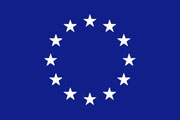People make the difference in the transition to our future energy system. S3C paves the way for the successful, long-term end-user engagement.
 The rule
"one-size-does not fit all” also applies to the preferences of end-users in the
energy system leading the S3C-consortium to differentiate between three
archetypes of end-users.
The rule
"one-size-does not fit all” also applies to the preferences of end-users in the
energy system leading the S3C-consortium to differentiate between three
archetypes of end-users.
The Smart Consumer wants to reduce energy consumption and costs and change his lifestyle routines. The Smart Customer wants to become a Prosumer, thereby consuming energy as well as providing energy services and consumption flexibility. The Smart Citizen wants to become part of a ‘smart energy community’ and help ensure quality of supply and environment preservation.
Our aim is to develop and test an innovative toolkit to facilitate activation and long-term engagement of all three end-user dimensions.
On the S3C toolkit website you can find tools and guidelines with practical information and advice on the implementation of your project, based on in-depth investigation of a family of S3C partner projects. Register now for the Webinar "Involving people in smart energy: A toolkit for utilities, energy agencies and smart city developers", 18th of February (3 PM CET). Download the S3C brochure "Empowering people for the smart energy system of the future - A toolkit for utilities, project managers, energy agencies and city developers We are researching ongoing and concluded projects to learn from experience and develop a new optimized set of tools and guidelines. We will test and validate those tools and guidelines in demonstration projects and offer a finalised toolkit. Check out best practice examples from past and ongoing projects and see examples for successful end-user activation, neighbourhood competition, gadgets, etc. You have a best practice example you want to share? Contact us at postmaster@s3c-project.eu The S3C project aims at developing ready-to-use tools for long-term end-user engagement by addressing the end-user in his three roles as smart consumer, customer and citizen. An interactive toolkit website will be developed throughout the project.
Download
Upcoming events
Supporters

